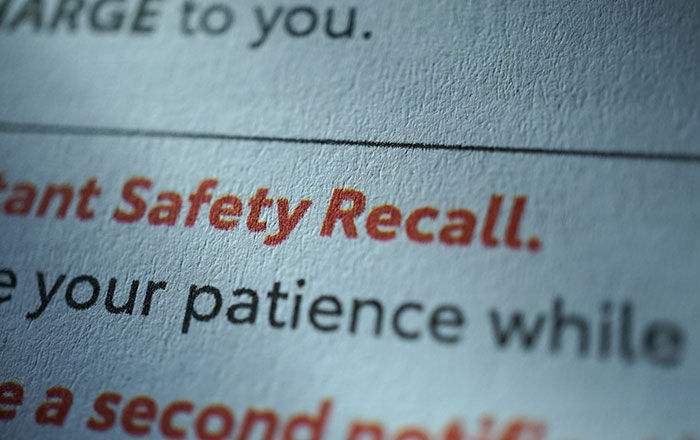
Workers’ compensation is a crucial safety net for employees who sustain work-related injuries or illnesses, as it provides financial support for medical expenses and lost wages during the recovery period. In South Carolina, as in other states, the duration of workers’ compensation benefits varies based on several factors.
Lost wage benefits resulting from a workers’ compensation claim are generally capped at 500 weeks in South Carolina. The amount of time that benefits are paid out will vary from case to case, because every claim is unique and some injuries are far more serious than others.
The general rule is that if you miss work for at least one week as a result of your injury, you are eligible to receive benefits on the eighth day. The amount you are entitled to will be two-thirds of your average weekly salary. If you end up being out of work for two weeks or more, you will be able to retroactively file for lost wages dating back to your first missed day of work.
Impairment Rating vs. Disability Rating
The amount of benefits you receive, and for how long, largely depend on your impairment rating – not be confused with a disability rating. Below, we will explain the difference.
Impairment Rating:
An impairment rating assesses the extent of the injured worker’s physical or functional impairment resulting from a work-related injury or illness. It is determined by a medical professional, often using guidelines provided by organizations such as the American Medical Association (AMA) in its “Guides to the Evaluation of Permanent Impairment.” The impairment rating is a measure of the severity of the impairment and is usually expressed as a percentage.
In South Carolina’s workers’ compensation system, the impairment rating is used primarily to calculate the compensation amount for permanent partial disability (PPD) benefits. The rating takes into account the nature of the injury, the affected body part, and the impact of the impairment on the injured worker’s ability to perform certain tasks. The higher the impairment rating, the greater the potential compensation for PPD benefits.
Disability Rating
Disability rating, on the other hand, encompasses a broader assessment of how the impairment affects the injured worker’s overall ability to perform work and earn a living. Disability rating considers not only the physical impairment itself but also factors such as age, education, work experience, and vocational limitations. It reflects the reduction in the worker’s earning capacity due to the injury. In South Carolina, the disability rating is a key factor in determining the compensation amount for permanent disability benefits.
Both impairment rating and disability rating are important aspects of workers’ compensation evaluations in South Carolina. These ratings help ensure that injured workers receive appropriate compensation to address the physical and economic effects of their injuries. If you’re involved in a workers’ compensation case, it’s recommended to consult with legal professionals or directly contact the South Carolina Workers’ Compensation Commission for accurate information based on your specific situation.
Maximum Medical Improvement (MMI)
Anyone who files a workers’ compensation claim in South Carolina should get to know the term “maximum medical improvement,” or MMI. This refers to the point at which an injured worker’s medical condition has stabilized to the extent that further medical treatment is not expected to result in significant improvement. It signifies that the injured worker has reached a level of recovery that is not likely to change substantially with additional medical intervention.
If your doctor determines that you have reached maximum medical improvement, you can return to your regular job, if you have been released to do so, and your weekly benefits will be terminated.
However, it’s possible that your doctor will clear you to return to work, but with work restrictions. Sometimes this results in employees working in a different role than they previously had. If this is the case, and the new role pays less than the old one, the worker can be eligible for two-thirds of the difference between the two pay rates.
If your employer is unable to offer a light-duty position, or you are unable to work any job due to your injury-related restrictions, you may be given a disability rating and continue to receive weekly workers’ compensation benefits until you can resume your regular job. As we mentioned earlier, these benefits are normally capped at 500 weeks. However, if you are left with a permanent and total disability involving paralysis or a brain injury, you may be eligible to receive lifetime disability benefits.
Below, we will further explain the types of workers’ compensation benefits, the duration of which depends on the severity of the employee’s injury.
- Medical Benefits: These benefits cover the cost of medical treatment, including doctor visits, hospital stays, surgeries, medications, and rehabilitation services. In South Carolina, injured workers have the right to select a doctor of their choice from a list provided by their employer.
- Temporary Total Disability (TTD) Benefits: If an injured worker is temporarily unable to work due to their injury or illness, they may be eligible for TTD benefits. These benefits provide wage replacement at a percentage of the worker’s average weekly wage until they reach a point of maximum medical improvement (MMI) or return to work.
- Temporary Partial Disability (TPD) Benefits: TPD benefits are available when an injured worker can perform some work but not at their pre-injury level. These benefits provide compensation for the wage difference between their pre-injury wages and their current earnings during the recovery period.
- Permanent Partial Disability (PPD) Benefits: After reaching MMI, if the injury or illness results in a permanent impairment but the worker can still work in some capacity, they may receive PPD benefits. The compensation amount is determined based on the impairment rating assigned by a physician and the specific body part affected.
- Permanent Total Disability (PTD) Benefits: PTD benefits are for workers who are completely and permanently unable to perform any type of work due to their injury or illness. These benefits provide ongoing financial support, often at a percentage of the worker’s pre-injury wages, depending on the circumstances.
- Vocational Rehabilitation: In cases where the injury or illness prevents the worker from returning to their previous job, vocational rehabilitation benefits may be provided. These benefits can include job training, education, and assistance in finding suitable employment.
- Death Benefits: If a work-related injury or illness leads to an employee’s death, death benefits may be provided to their dependents. These benefits typically cover funeral expenses and provide financial support to the deceased worker’s surviving spouse and dependents.
Those who have lost a body part due to a workplace injury may find it beneficial to refer to South Carolina’s Schedule of Period of Disability and Compensation. This outlines the maximum amount of time that benefits can be received when there’s a total loss of a certain body part.
The details are as follows:
- Thumb – 65 weeks
- First finger – 40 weeks
- Second finger – 35 weeks
- Third finger – 25 weeks
- Fourth finger – 20 weeks
- Big toe – 35 weeks
- Other toe – 10 weeks
- Hand – 185 weeks
- Arm – 220 weeks
- Foot – 140 weeks
- Leg – 195 weeks
- Eye – 140 weeks
- Shoulder – 300 weeks
- Hip – 280 week
Conclusion
Workers’ compensation benefits in South Carolina are designed to support employees who suffer work-related injuries or illnesses. The duration of these benefits varies depending on the type of benefit, the severity of the injury, and the individual’s progress towards recovery. It’s important for injured workers to understand their rights and seek legal advice if they have concerns about the duration or eligibility for workers’ compensation benefits.
Contact McWhirter, Bellinger & Associates
If you’ve been injured at a South Carolina workplace, you may be eligible to receive workers’ compensation benefits. The personal injury attorneys at McWhirter, Bellinger & Associates have been representing injured workers in the Palmetto State for more than 40 years, working hard to make sure they receive fair compensation following their on-the-job accidents.
McWhirter, Bellinger & Associates has seven offices across the Midlands of South Carolina, and we offer free case evaluations.
Give us a call today at 803-573-3894. It won’t cost you anything to see if we can help.®















